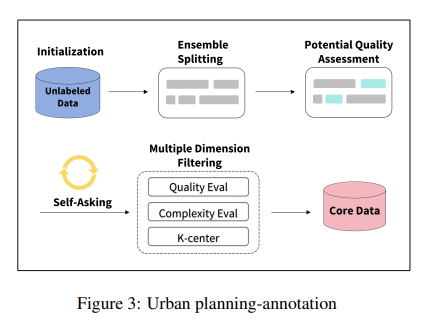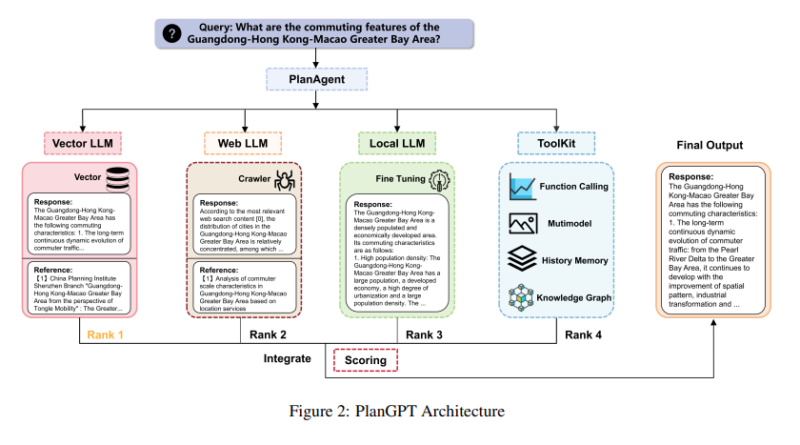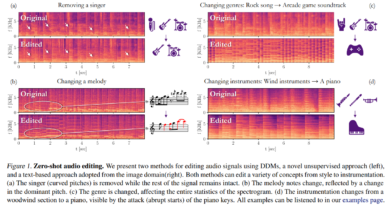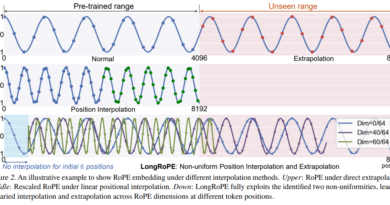PlanGPT: Revolutionizing Urban Planning with Specialized Language Models
In the rapidly evolving field of urban and spatial planning, the integration of advanced technological tools is increasingly becoming indispensable. These tools not only streamline planning processes but also enhance the accuracy and efficiency of urban development strategies. Amidst this technological revolution, the emergence of specialized large language models (LLMs) tailored specifically for urban planning marks a significant leap forward, offering new data analysis and decision support dimensions.
The Challenges of Urban Planning
Urban planning faces unique challenges that require innovative solutions and precise insights. Managing extensive documentation, adhering to stringent regulations, and addressing complex spatial problems are just a few of these challenges. To overcome these hurdles, urban planners need tools that understand the intricate language of urban planning and provide actionable insights.
The Limitations of General-Purpose Language Models
Urban planners have traditionally relied on general-purpose language models for text generation and information retrieval tasks. However, these models often struggle with the specialized terminology and complex requirements unique to urban planning. The gap between the capabilities of general-purpose models and the specific needs of urban planning professionals highlights the necessity for more specialized solutions.
Introducing PlanGPT: A Specialized Language Model for Urban Planning
To bridge this gap, researchers from the Behavioral and Spatial AI Lab at Peking University, the China Academy of Urban Planning & Design, the Technical University of Munich, and the University of Tokyo have developed PlanGPT, the first specialized large-scale language model framework designed specifically for spatial and urban development.

PlanGPT has been developed in collaboration with institutions like the Chinese Academy of Urban Planning, bringing together interdisciplinary knowledge and expertise. It introduces a customized embedding model and a vector database retrieval system, enhancing the precision of information extraction from urban planning texts. Through domain-specific fine-tuning and advanced tooling capabilities, PlanGPT addresses the unique demands of the urban planning field.
Advantages of PlanGPT for Urban Planning Professionals
PlanGPT offers several key advantages that make it a transformative tool for urban planning professionals:
- Improved Precision: By leveraging specialized domain knowledge, PlanGPT delivers higher quality and relevant responses compared to existing models. Its customized embedding model and vector database retrieval system enable more accurate information extraction from urban planning texts.
- Government Document Stylistic Nuances: PlanGPT ensures that its outputs are relevant and adhere to the stylistic nuances of government documents. This feature is especially crucial for urban planning professionals who need to generate documents that align with specific guidelines and regulations.
- Handling Complex Planning Scenarios: Urban planning often involves dealing with complex planning scenarios and large-scale data. PlanGPT’s advanced tooling capabilities enable it to handle these challenges efficiently, providing valuable insights for decision-making.
- Timeliness and Multimodality: PlanGPT addresses the challenges of low signal-to-noise ratios and the need for timeliness and multimodality in planning documents. It generates responses quickly and supports multimodal data, enhancing the productivity of urban planning professionals.
Empirical Tests and Performance
Empirical tests have demonstrated the superior performance of PlanGPT in typical urban planning tasks. Its ability to efficiently generate urban planning texts, retrieve related information, and evaluate planning documents showcases its potential as a game-changing tool for urban professionals. By outperforming existing state-of-the-art models, PlanGPT sets a new standard for accuracy and efficiency in the field of urban planning.
The Future of Urban Planning and PlanGPT
PlanGPT represents a significant advancement in the application of specialized language models within urban and spatial planning. By providing a tailored, efficient solution to the unique challenges faced by urban planners, PlanGPT not only enhances the productivity of professionals in the field but also paves the way for more informed and effective urban development strategies.
As the field of urban planning continues to evolve, the integration of advanced technological tools like PlanGPT will become increasingly essential. By leveraging the power of specialized language models, urban planners can make more informed decisions, streamline processes, and create sustainable and thriving urban environments.
The development of PlanGPT underscores the potential of specialized language models to revolutionize industry-specific tasks, offering a glimpse into the future of urban planning in the era of artificial intelligence. With continued research and development, we can expect further advancements in specialized language models for urban planning, ultimately leading to smarter, more efficient, and sustainable cities.
Conclusion
In conclusion, PlanGPT is the first specialized large-scale language model framework designed specifically for spatial and urban development. Its development by researchers from prestigious institutions highlights the growing recognition of the need for specialized tools in urban planning. By addressing the limitations of general-purpose language models and catering to the unique demands of urban planning professionals, PlanGPT offers an innovative solution that enhances the accuracy and efficiency of urban development strategies.
As urban planning continues to embrace advanced technologies, PlanGPT sets the stage for future advancements in the field. By leveraging the power of specialized language models, urban planners can navigate the complexities of urban development with greater precision and effectiveness. PlanGPT truly represents a revolution in urban planning, paving the way for smarter, more sustainable cities.
Check out the Paper. All credit for this research goes to the researchers of this project. Also, don’t forget to follow us on LinkedIn. Do join our active AI community on Discord.
If you like our work, you will love our Newsletter 📰






